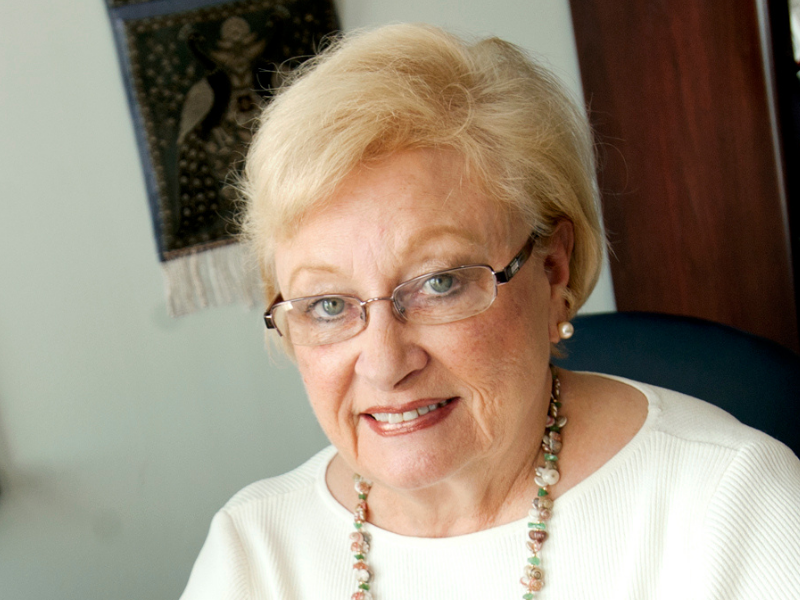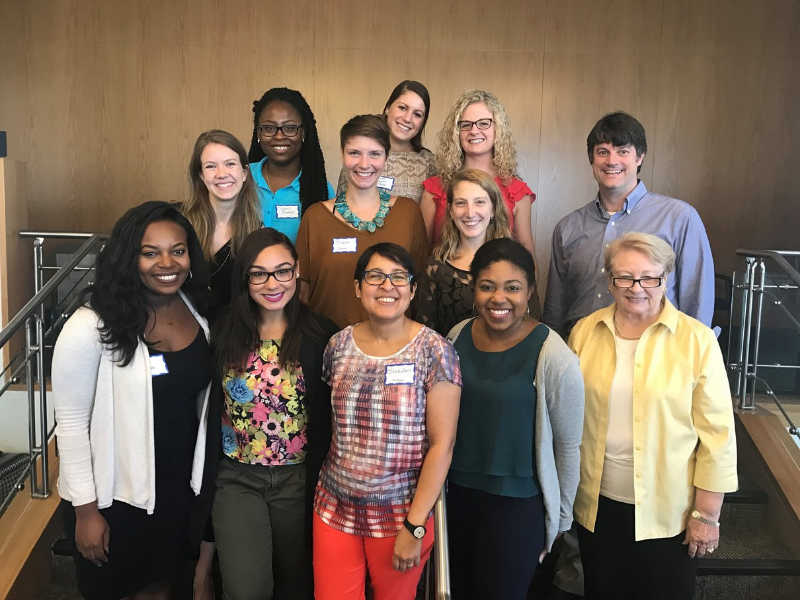Carolyn Johnson reflects on 30 years of behavioral change research

After 30 years as a professor, research, and center director, Dr. Carolyn Johnson retired from Tulane just before the start of the new academic year. During her tenure, Johnson has seen great changes across the School of Public Health and Tropical Medicine, changes she’s been proud to be a part of.
Johnson didn’t follow what some might consider a typical path to academia. In fact, when she graduated high school, she didn’t even attend college. Instead, she took on a conventional role, as a wife and mother of two children. She didn’t take her first college course until she was in her 40s.
Academic life seemed to agree with her. A bachelor of arts in psychology from the University of New Orleans led to a master of science in clinical psychology at the University of San Diego and then a PhD in biopsychology back at the University of New Orleans. Degrees in hand, she accepted a position with the Bogalusa Heart Center, a renowned longitudinal study headed by Dr. Gerald Berenson, then affiliated with the Louisiana State University School of Medicine.
The Bogalusa Heart Study spawned several behavior change programs, including one major program called the Child Adolescent Trial for Cardiovascular Health, or CATCH, which Johnson was actively involved in. CATCH was the largest school-based field trial sponsored by the National Institutes of Health up to that time and included both nutrition and physical activity interventions to impact the cardiovascular health of students, who were followed from third through fifth grade.
“We were kind of like a fifth wheel at the School of Medicine at LSU because we were doing public health work,” said Johnson. The Tulane School of Public Health was primarily focused on teaching, but Dean Harrison Spencer enticed Berenson to bring the Heart Study to Tulane as a way to shift the school’s focus to research. “With one fell swoop, he brought millions of dollars of research with the Bogalusa Heart Study and the CATCH study. This became the impetus for changing the entire environment of the school.”
The push to conduct more research continued with the arrival of the next dean, Dr. Paul Whelton, currently the Show Chwan Professor of Epidemiology.
“I’ve served under four different deans,” says Johnson, all of whom have had a focus on research, an objective she applauds. “It is through the research that you gather the evidence to support and generate new programs and public health. Without the research, public health stagnates, so I feel privileged over these past 30 years to have witnessed these changes.”
She’s also served in the same department, but under four different names – currently the Department of Social, Behavioral, and Population Sciences. “The school is dynamic, which is a good thing for public health,” Johnson says. “It’s a good thing for the students. The change brings in new ideas, and the students and the faculty benefit from all of these changes.”
Although family was always very important to Johnson, she sees her later entry into academia as a plus. By then she was divorced, her children were grown, and although she was a grandmother, that role didn’t make as many demands on her time as young children might have. She had the flexibility to put in extra work when needed, work that was recognized in 2001 when she was honored with the school’s Champion of Public Health award, one of Johnson’s proudest moments.
Since 2010, Johnson has been director of the HRSA-funded Center of Excellence in Maternal and Child Health (CEMCH). The center fills a needed gap, she says, because trained professionals in this area are desperately needed. The center provides extensive leadership training, which helps students to secure internships and practicums with state and federal offices, and gives them an edge in the marketplace.

Dr. Carolyn Johnson (front row, far right) with MCH Leadership Scholars with the Center of Excellence for Maternal and Child Health (CEMCH)
“Carolyn has been a model of leadership,” said Dr. Alessandra Bazzano, associate professor of social, behavioral, and population sciences. “I feel very fortunate to have joined the maternal child health program during her tenure as the program director. She has also led the Center of Excellence in Maternal Child Health as it grew from strength to strength in training our students and the future MCH workforce.”
In addition to CEMCH, Johnson also led the Tulane Prevention Research Center, a CDC-funded program focused on the social and behavioral determinants of obesity. And, of course she remained active in the classroom.
Dr. Mark Dal Corso, associate professor of social, behavioral, and population sciences, has seen her commitment in action over the years. “Carolyn has a way of listening to and addressing the needs of both students and faculty in a very relaxed way and making everyone who works with her feel heard and comfortable. She was continually trying to improve the learning experiences of our students and address the concerns and suggestions they had.”
Retirement will be a new phase for Johnson, but she won’t step completely away from the public health sphere. She’s been named an emeritus professor and plans to continue writing manuscripts for publication and consulting on grants, along with spending more time with family.
